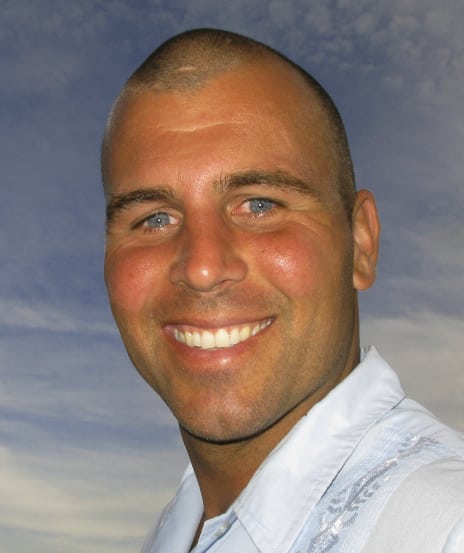 Technology does not solve problems without people, Wayan Vota says. People need to commit to finding a solution and technology can pave the way, he said, as a reminder of the order of things.
Technology does not solve problems without people, Wayan Vota says. People need to commit to finding a solution and technology can pave the way, he said, as a reminder of the order of things.
Wayan has honed his perspective over a career of 20 years as both a commentator a coach to the rise of Internet and communications technology worldwide. His front-row seats to the spectacle are as the senior mobile advisor at FHI 360, co-founder of Kurante and founder of the Technology Salon monthly conferences in ICT for development. He also founded five news sites including ICTworks and Educational Technology Debate. We asked him five questions.
E4C: What is one of the big obstacles to the widespread adoption of monitoring and evaluation technologies among aid organizations and social enterprises?
WV: One of the main issues in monitoring and evaluation is that we all give lip service to it and talk about how it’s important, but oftentimes we don’t back up that importance with the resources required to actually do good M&E [monitoring and evaluation]. I think there are two underlying reasons.
The first is that we feel that accounting for something or measuring something is less important than actually doing the thing. So, we’ll see a lot of money spent on training or development intervention, but we won’t see an equal amount spent on monitoring or measuring that intervention as it’s happening to improve it as we go along.
No one likes to talk about their failures. But the reality is we should be monitoring and evaluating everything we’re doing and continuously improving
The other challenge is that we often don’t like the results from M&E. Often the results are showing us that we are not hitting our targets.
But, you know, M&E is the concept of seeing what works and what doesn’t. No one likes to talk about their failures. But the reality is we should be monitoring and evaluating everything we’re doing and continuously improving.
E4C: What’s the next big thing that will take off in developing countries the way that cell phones have?
WV: I don’t know of anything that will take off quite like the mobile phone because the mobile phone satisfies an inherent human need to communicate. I don’t know of another basic human need that is so obvious and easy to fix.
Now, the technology I think that is really cool that we are not focusing on that will radically change the developing world is drones. I see drones as a logistics solution. So, right now, getting from point A to point B oftentimes requires long drives on rutted roads, if the road exists to begin with. And just like mobile phones allow us to communicate without having a wire from point A to point B, I think drones are going to enable us to move atoms without driving along the world. [For more, see our webinar on drones in disaster response.]
“I think MOOCs have promise, but the MOOC solution isn’t here yet.”
E4C: What hardware or software obstacles are preventing people in developing countries from taking advantage of Massive Open Online Courses now?
WV: The challenge with MOOCs is that there’s still an expectation or requirement that the user have high-speed Internet and a desktop computer. When we look at Internet access and activity, especially across Africa, we’re seeing it primarily on the mobile phone. In Kenya we’re seeing 80 to 90 percent of Internet access via mobile only.
Also, when you look at MOOC data overall, you see that the majority of people who are successful are people who already have had a successful experience with higher education. So they are intrinsically motivated to finish a class. These are the people that oftentimes succeed in MOOCs, those that are already advantaged.
So I think MOOCs have promise, but the MOOC solution isn’t here yet. If you look at the founder of MOOCs you’ll see that he left to go see what was wrong because he realized that he was essentially advantaging those that are already advantaged. [That is Sebastian Thrun, a robotics professor at Stanford University and founder of the online courses company Udacity.]
E4C: What are some of the important hardware and software solutions that have come out in the last five years that are addressing common problems in ICT in developing countries?
WV: One of the most valuable and ubiquitous devices now being used across the developing world is the tablet. The 5in or 7in Android tablet. Right in one device you solve several challenges.
- If the tablet has a SIM chip, you’ve solved the connectivity problem.
- The tablet inherently solves a huge power problem because it comes with a battery. So, it can survive the blackouts and brownouts that are common.
- Last but not least, it comes with access to a plethora of software and apps, many of which are free. It also comes with access to a lot of content including offline content that they can download.
- …And it also comes with a user interface that people can use with little or no training.
I’m a big fan of the tablet as a multi-problem solver.
I wouldn’t necessarily agree with the concept of being a lawyer, but everybody has to have a dream.”
E4C: Story time: Would you tell us about a time when you knew you are in the right line of work?
WV: A few years ago I was in a school in Malawi. We were working to improve the school’s teaching capacity and one aspect of that was to instal a system of content and equipment for the children to be able to use laptops in the classroom. And unprompted and unscripted, a young lady opened a laptop, clicked on a few things until she found a word processor, and she was so excited and she typed, “Now that I have a computer, I want to grow up to be a lawyer and serve my country.”
[This picture in Inveneo’s Flickr photostream captured the moment.]
I thought, Wow, the level of complexity it took to think through that moment… I wouldn’t necessarily agree with the concept of being a lawyer, but everybody has to have a dream. It was one of those moments when I was thinking, Yep, this is why I do this work.
For more, find Wayan on Twitter: @Wayan_Vota.

